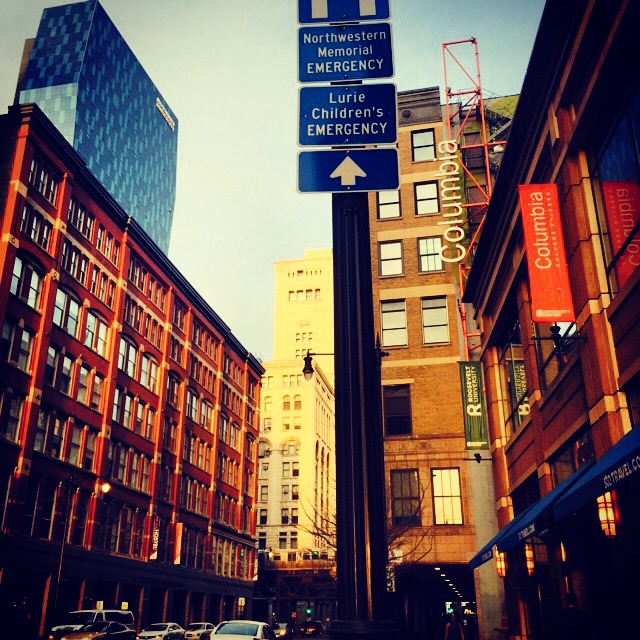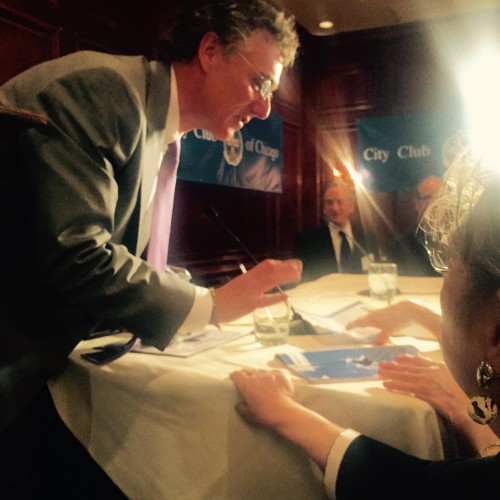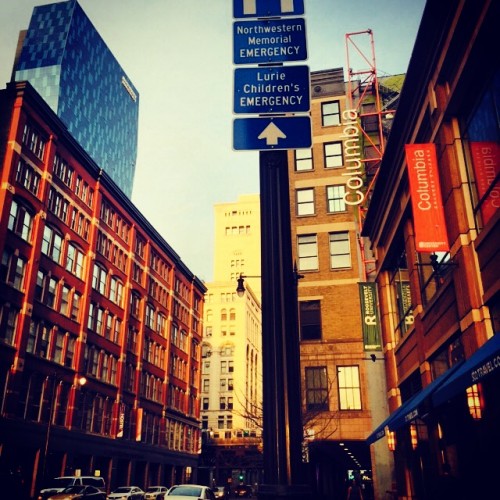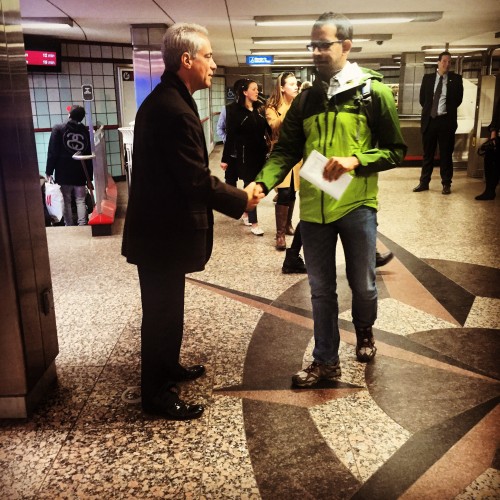
Three Lessons I Learned in My Second Semester at Columbia
As my cohort and I come to the end of our second semester as graduate students, but also make it two-thirds of the way through our program, we begin to realize the things that we have learned throughout the program that have helped us the most.
In the second semester of the Journalism, MA program, you are required to take the “Reporting Public Affairs- State and National” course with Ray Long and Sam Roe from the Chicago Tribune.
When my classmates and I first heard about who was teaching the class, we were very intimidated. How could we live up to the standards of Chicago Tribune reporters, we are just mere grad students?
We all went into the class sure we would not succeed or be able to uphold the standard of writing that comes with the experience both of these men have.
However, when we met both Ray, who teaches the first half of the semester, and Sam, who teaches the second, we felt a fire ignite inside of us—a passion we had always felt was there but didn’t fully feel until this class.
You see, you are require to follow a legislation beat for the first half of the semester and for the second half, you are required to do a watch dog, or investigative story. As I have mentioned before in my blog posts, I am the only one out of the seven members of my class whom are interested in investigative reporting. But to my surprise, the whole class was motivated to do well in their investigative stories, which focused on looking into one- and two-star nursing homes.
My cohort and I all agree that the things that may have motivated us the most were the lessons we were taught by both Ray and Sam, lessons we think every journalist should be taught.
In these lessons, I regained my motivation for this program, I regained my passion for this industry—not that it was lost, but the intensity of graduate school can take a toll on your drive!
After looking back and realizing the specific lessons that helped me the most throughout the semester, I realized that every journalist should know these specific points, so I will share them with you, my readers.

Cook Count Sheriff Tom Dart speaks to his constituents at City Club of Chicago forum for “Cook County Justices” after speaking about overcrowding in jails and mental health services.
1. You need to find your daisy.
When you begin reporting about the public affairs throughout the state, you find yourself wanting to get the connection between the legislation being passed in Springfield, and the citizens of the state of Illinois, specifically those of Chicago. How does this affect them? Why should they care? What will tie the reader to my story? One of the best pieces of advice Ray Long gave our class during his six weeks with us, was to find our Daisy—or, in more understandable terms, find the person that your audience can connect to. For me this was Randy Boese, a homeless man receiving Medicaid, which paid for the nursing home he lived in and the medication he needed for his numerous illnesses. Randy allowed me to show how the budget cuts to the Human Services Department proposed by newly elected Gov. Bruce Rauner would affect the people who received those services. He made the story real and allowed my audiences to visualize exactly what these cuts would mean to the average Chicago citizen.
2. You are giving a voice to the voiceless; you are supposed to be changing the world.
During my time at my undergrad, every time I was asked what my major was and I reposed with journalism and political science, more time than not the person who had asked responded with “why?” I spent some time asking myself the same question, even though I knew why I wanted to be a journalist—I wanted to tell the stories of those who couldn’t. It wasn’t until the first time I met Sam Roe that this feeling I had towards my profession was really confirmed. He repeated a quote that a friend of mine put on a poster, which hangs in the office in my apartment. He said, “You are supposed to be changing the world.” It hit me at that exact moment that other journalist felt the same way I did. We were here for a reason, we were here to seek out the truth and provide it to those that could not seek it out themselves, to hold those who had done wrong accountable for there actions, to give a voice to the voiceless. This lesson is one that I had known all along, but to hear it from someone who has been in the industry for years reaffirmed that this is why I was here, this is why I wanted to be a journalist.
3. No one wants to call sources, but you have to do what others wouldn’t. You have to become an instant expert and be confident in your questions.
I cannot tell you how many times I sat at my desk staring at my phone and thought to myself, “ I really do not want to make this phone call.” I don’t know exactly what it is, but the thought of calling a stranger and asking them questions that may come off as abrasive did not sound appealing. It wasn’t until both Ray and Sam told our class that they hated making phone calls to sources, did I finally feel like I wasn’t alone. No one likes making those calls; no one likes calling a source about a subject they know little about and pretend they are an expert. But Sam and Ray both taught us a lesson that we all agree will stay with us throughout our careers; become an instant expert, and if you don’t have time for a quick Google search, somewhat, “fake it until you make it.” What they meant by this was to first make the call to your source, because once you start talking you will feel a lot more comfortable. Second, know the subject that you are calling the source about; be prepared for the answers they will give and have follow up questions ready. Third, if you are given an assignment and only have a few minutes to prepare before you are thrown into it, try to observe your surroundings and go with the flow of the conversation, or “fake it until you make” the interview work. This last one is more challenging, but I promise when you are in the situation, when you run into a source you were planning on calling the following day for a story while you are at an event covering a different story, you surprise yourself with how quickly you can come up with basic questions to get your source talking.
There are numerous other lessons I have learned throughout my two semesters in this program, but these three lessons, I know for certain, are lessons I will carry with me into my career and will teach to me students when I am a professor of journalism one day.


